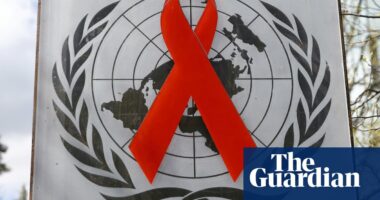Share this @internewscast.com
A doctor has warned the public about the dangers of improperly storing leftover rice and pasta.
It’s common practice to save excess food or takeaway for the next day to avoid wastage. The process for most foods is straightforward: let it cool, then refrigerate.
However, an American ER doctor, Joe Whittington, has raised alarm bells about preserving any dishes containing rice or pasta. In a TikTok video, he reacted to another user’s post recounting the tragic tale of a 20-year-old man who died after consuming five-day-old pasta that hadn’t been refrigerated.
The young man was studying in Belgium when he tragically lost his life in 2008 after eating spaghetti leftovers, which he had prepared five days earlier and left out at room temperature instead of refrigerating.
Soon after consuming the pasta, he fell ill with severe vomiting and gastrointestinal symptoms, and by the following morning, he was found dead. An autopsy revealed acute liver failure, and tests showed high levels of a bacterium known as Bacillus cereus in the pasta, according to the Journal of Clinical Microbiology.
In his video, Dr Joe cautioned that although most of us wouldn’t eat five-day-old pasta anyway, Bacillus cereus can develop in pasta and rice dishes rapidly, exposing you to risks within hours rather than days.
He elaborated: “This 20-year-old man died of a condition that’s commonly referred to as ‘fried rice syndrome’. This is a condition in which you have bacterial overgrowth if pasta or rice is left at room temperature for too long.
“In medical school, we’re taught the phrase ‘Reheat rice? Be serious!’ to remember which bacteria [b. cereus] causes this condition.
“So, how long is too long? You should not eat pasta or rice left at room temperature, unrefrigerated, for more than two hours.”
The NHS advises that rice should be cooled within an hour of cooking and then immediately stored in the fridge or freezer. It should also be consumed within 24 hours and never reheated more than once.
Viewers of Dr Joe’s video had mixed reactions. Many claimed they’ve never fallen ill after consuming pasta or rice that has been left at room temperature for over two hours.
However, some highlighted that the two-hour rule doesn’t guarantee food poisoning or death from eating rice or pasta left on the kitchen counter. This is merely when the bacteria begin to multiply, meaning your risk of food poisoning escalates the longer it is left out.
What to do if you have food poisoning
Food poisoning is typically not severe and generally improves within a week. Symptoms such as vomiting and diarrhoea can often be managed at home, with the key being to stay hydrated to avoid dehydration.
It’s also crucial to get plenty of rest and eat when possible – but steer clear of fatty or spicy foods, which could further irritate your sensitive stomach. The NHS also recommends avoiding fruit juice or fizzy drinks, as these can exacerbate diarrhoea.
When to consult a doctor
You should call 111 if:
- You’re worried about a baby under 12 months
- A child under five years has signs of dehydration (such as fewer wet nappies)
- You or your child have signs of dehydration after using oral rehydration sachets
- You or your child keep being sick and cannot keep fluid down
- You or your child have bloody diarrhoea or bleeding from the bottom
- You or your child have diarrhoea for more than 7 days or vomiting for more than 2 days
You should call 999 if you or your child:
- Vomit blood or have vomit that looks like ground coffee
- Have green vomit (adults)
- Have yellow-green or green vomit (children)
- May have swallowed something poisonous
- Have a stiff neck and pain when looking at bright lights
- Have a sudden, severe headache
- Have a sudden, severe tummy ache
- Have blue, grey, pale or blotchy skin, lips or tongue – on brown or black skin, this may be easier to see on the palms of the hands or soles of the feet
- Are having severe difficulty breathing, or taking lots of quick, short breaths
- Are confused or not responding as usual
You can find more information on food poisoning via the NHS website.
















